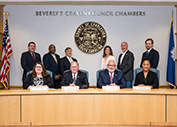Lawyers and the Internet
Former Master in Equity for Charleston County
(Note: This article was written for an issue of the Charleston County Bar newsletter)
Seldom does a day pass anymore when you are not exposed to some reference to the Internet. Even if you do not have access to the Internet you no doubt see or hear some technical sounding gibberish like "www.something.com". If you have access to the Internet, these references allow you to navigate to web pages which often contain information in far more detail than television and radio provide (it is hardly possible to provide less).
I remember when I first discovered the Internet about two years ago. I had been a Compuserve customer for years, sampled America On-Line, and visited hundreds of computer bulletin boards. I was a satisfied customer simply because I didn't know any better. Curiosity finally got the better of me.
Your first experience with the Internet can be intimidating simply because there is so much out there. One of the first web sites I came across was run by the University of Kansas. A roulette wheel appears on the screen and you click on a button to get the wheel "spinning". You then land randomly at some other site in the Internet. No rhyme or reason why you landed there. Just a quick trip through cyberspace. I began to get some sense of just how big this Internet thing is. Very often something would catch my eye that would cause me to stay and visit. A site which interested me would often have links to other sites that interested me. A visit to the new site was always just a click away. I began to see what a wonderful tool I possessed.
How does this affect you as a lawyer? Let me count the ways.
First, of course, are the numerous and ever-growing number of law-related web pages. To begin to list them would not begin to do justice to the many fine sites on the Internet. You can visit the web page I created for the Master in Equity's office and find several links to goods sites. You will find each of these sites has links to other good sites. Your search will yield results exponentially.
Second, it is a safe bet that if you pick a subject, any subject, there is something on the Internet on it. The Internet isn't just government and university mainframes hooked together anymore. It is millions of computers world-wide linked together and available to anyone who owns a personal computer and an account with an Internet Service Provider. Take me, for instance. I once wrote a tongue in cheek article on The Zen of Macaroni and Cheese. It is about my quest for the perfect macaroni and cheese casserole. There is not a sane publisher on the planet who would ever publish it. But I posted it on my home page and it is out there for the world to read. So if you ever go on-line searching for a macaroni and cheese recipe, you might very well find it. My point is esoteric. But if esoteric is what you are looking for, you're likely to find it.
But the Internet is much more than web pages. I have discovered that newsgroups and mailing lists are a great source of collective wisdom. Newsgroups are a little hard to define since they only exist electronically. Your Internet service provider subscribes to thousand of newsgroups which are grouped by subject. You decide what subjects interest you and "subscribe" to them. There is no extra charge for these subscriptions. You visit them as frequently as you want. When you visit your newsgroup, you are presented with a list of all the messages that have been posted since the last time you visited. You can read as many of them as you would like, responding to any you wish along the way. There are tens of thousands of these newsgroups. Subjects like law have dozens of sub-specialities. You can ask questions, pose hypotheticals or respond to questions others have posed. Thousands of very educated and motivated people read these questions, so you stand a good chance of getting a very informed response. In fact, you will probably get lots of very informed responses.
Mailing lists are very similar to newsgroups. Again, there are thousand of mailing lists. You subscribe to the ones you want. The difference is that every single email question, response and comment which is posted to that mailing lists is sent by email to every subscriber on the list. Subscribe to a couple of active mailing list and you will find yourself with a couple of hundred email letters in your mailbox every time you logon. Pick and choose carefully. You may find newsgroups more to your liking if you subscribe to a lot. I subscribe to one on legal ethics and recall a person who posed what he thought was a very simple question. Dozens of responses later he posted a message to the effect that he couldn't believe he received so many responses to such a simple question. The general consensus of the group was that any person who asked a bunch of lawyers a simple question and thought they would get a simple answer was indeed quite naive.
My suggestion is that you venture out and try it. If you own a personal computer with a modem the cost is very reasonable. I recommend that if you are comfortable with a computer and don't mind tinkering, go ahead and sign up with a local Internet servicer provider (ISP). The cost for unlimited (yes, unlimited) monthly service runs from $12.00 to $25.00 per month, depending on whether you pay in advance.
For people who have never gone on-line or don't have much experience, I recommend using America On-Line (AOL), Compuserve (CIS) or The Microsoft Network (MSN). Each of these services provide you with a wide range of proprietary services plus they have access to the Internet included. The difference between them and a local ISP is not that much since they recently dropped charging by the hour. This stuff can get addictive and it used to be real easy to run up a monthly bill of over a hundred dollars using AOL or CIS. The rapid proliferation of local ISPs caused them to drop hourly billing in recent months so you can access the Internet to your heart's content for $19.95 a month on any of these services. The chances are also very good that if you purchased a computer with a modem in the last couple of years you already have at least one, if not all three, of these services already installed on your computer. If not, purchase a copy of almost any computer magazine and you'll probably find a disk for AOL in it.
So broaden your horizons. It really is fun and quite informative. And a requisite for keeping up your image as a Renaissance Man in this day and age.
Contact
Master-In-Equity
Charleston County Judicial Center
![]() 100 Broad Street, Suite 266
100 Broad Street, Suite 266
Charleston, SC 29401
Phone: (843)958-5070
Fax: (843)958-5077
E-mail: khodge@charlestoncounty.org
Office Hours:
Mon. - Fri. 8:30am - 5pm




